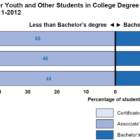
House, Senate Take Different Paths on Proposed Juvenile Justice Funding
|
Reformers are dismayed by a proposed House spending bill that would eliminate funding for several major juvenile justice programs next year.
Juvenile Justice Information Exchange (https://jjie.org/page/175/)

In late September, Torri was driving down the highway with her 11-year-old son Junior in the back seat when her phone started ringing.
It was the Hamilton County Sheriff’s deputy who worked at Junior’s middle school in Chattanooga, Tennessee. Deputy Arthur Richardson asked Torri where she was. She told him she was on the way to a family birthday dinner at LongHorn Steakhouse.
“He said, ‘Is Junior with you?’” Torri recalled.
Earlier that day, Junior had been accused by other students of making a threat against the school. When Torri had come to pick him up, she’d spoken with Richardson and with administrators, who’d told her he was allowed to return to class the next day. The principal had said she would carry out an investigation then. ProPublica and WPLN are using a nickname for Junior and not including Torri’s last name at the family’s request, to prevent him from being identifiable.
When Richardson called her in the car, Torri immediately felt uneasy. He didn’t say much before hanging up, and she thought about turning around to go home. But she kept driving. When they walked into the restaurant, Torri watched as Junior happily greeted his family.
Soon her phone rang again. It was the deputy. He said he was outside in the strip mall’s parking lot and needed to talk to Junior. Torri called Junior’s stepdad, Kevin Boyer, for extra support, putting him on speaker as she went outside to talk to Richardson. She left Junior with the family, wanting to protect her son for as long as she could ...

Reformers are dismayed by a proposed House spending bill that would eliminate funding for several major juvenile justice programs next year.

"After just 24 hours, I testify that solitary confinement is hell on earth. Solitary confinement is legalized torture," says Anyssa Williams, a Georgia State University student who spent 24 hours in an 8 by 8 cell replica for a school assignment.

This week South Carolina lawmakers approved “raise the age” legislation that would increase the upper age of juvenile jurisdiction from 16 to 17 for most young offenders. All but nine states already consider teenagers juveniles until they turn 18.

Girls’ involvement in the juvenile justice system is growing disproportionately at a time when arrest rates for boys are declining. And yet, girls’ behavior has not changed; rather, our response to their behavior has changed. This is especially true for girls in the child welfare system.

Burdensome paperwork requirements, limited academic preparation and a lack of adult guidance and support make it difficult for foster and homeless youth to pursue higher education, says a new report by the Government Accountability Office.

How can we convince our direct service staff that their investment in the youth will actually make a difference? As professionals working with the juvenile justice population, we are aware there is no instant gratification and it can be many years before we know if our investment made a difference.

Katrina Alston wasn’t trained as a therapist, social worker or anything of that nature when she worked at a Pasadena, California, group home for emotionally troubled teenage girls in the Los Angeles County foster care system. She simply went through a weeklong training process and two weeks of job shadowing.

With less than 100 days remaining on the 114th Congress’ legislative calendar, time is running out for Congress to come together to protect our children and our communities.